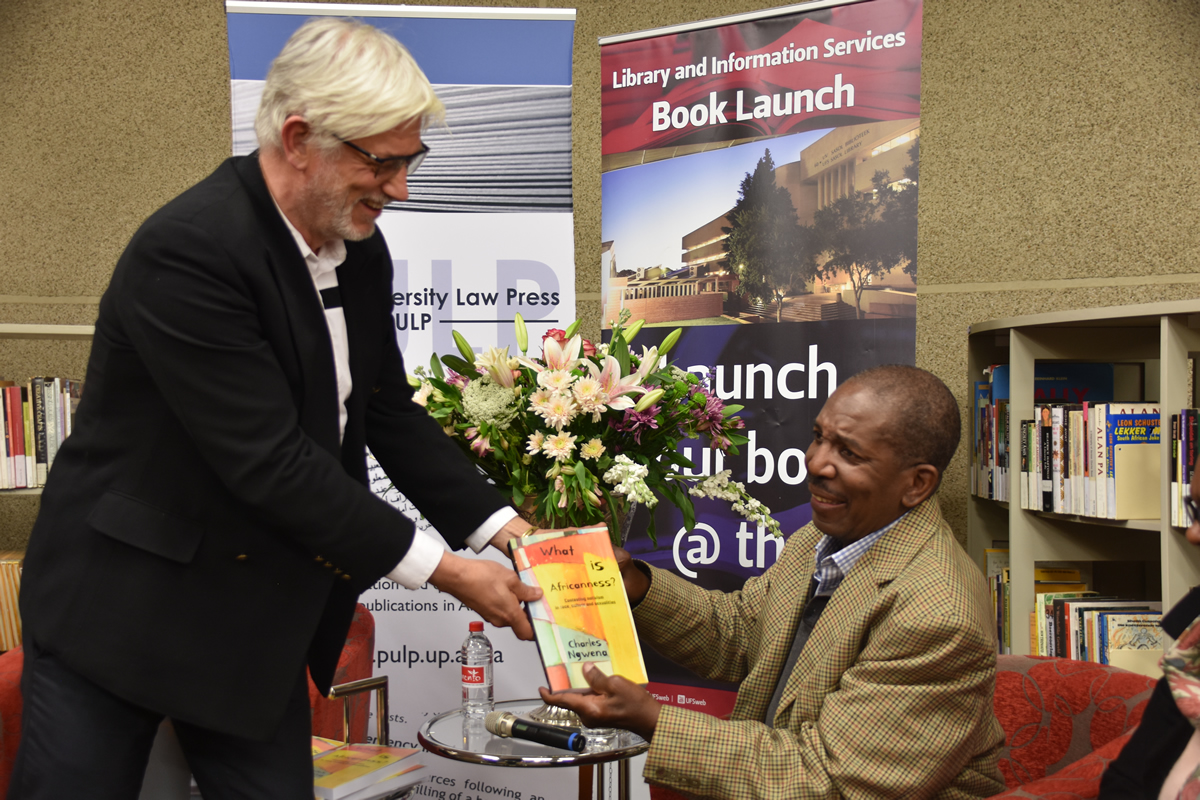The Pretoria University Law Press (PULP) on 11 September 2018 marked its 200th publication with the launch of a monograph by Charles Ngwena, titled What is Africanness: Contesting nativism in culture, race and sexualities. This book has already been lauded as a significant contribution to ongoing discussions about race and identity.
What is Africanness: Contesting nativism in culture, race and sexualities is a peer-reviewed monograph aimed at contributing to the ongoing scholarly conversation in and beyond South Africa about who is African and what is African. It looks critically at the naming of Africans by showing its purposes and effects; and offers an alternative understanding of how Africans can be named or can name themselves. The arguments in this book go beyond problematising African identity by addressing a theoretical gap in discussing African social identity. The book develops an interpretive method that looks to the present, the future and the past, so that African identifications are not nailed to a mast but remain invested with mobility and the capacity to mutate radically, allowing for new and unexpected beginnings.
Charles Ngwena is Professor of Law at the Centre for Human Rights, Faculty of Law, University of Pretoria. He has established a firm reputation as internationally recognised scholar on the themes of disability and sexual and reproductive rights. With What is Africanness: Contesting nativism in culture, race and sexualities, Professor Ngwena has reinvented himself as a scholar of importance on issues of race and identity.
The launch was a truly collaborative event. It was hosted by the Centre for Gender and Africa Studies, at the University of the Free State, as part of its annual celebrations of Heritage Day. Dr Nadine Lake, of this Centre, started off the launch by introducing the book. At the launch, Tshepo Madlingozi, a colleague of Charles at the Faculty of Law, UP, gave a perspective on the work and framed some issues for discussion. Professor Ebenezer Durojaye, from the Dullah Omar Institute, at the University of the Western Cape, and an erstwhile student of Professor Ngwena, acted as programme director. The Director of the Centre for Human Rights, UP, where PULP is located, thanked all the collaborative partners, the staff of PULP and Centre, and the author for his very deliberate choice of PULP as the outlet for his research.
PULP is an open-access publication. Professor Ngwena’s book is available on line, free of charge, please visit the PULP website. Printed copies may be ordered from PULP.
In a report by the Centre for Research on Evaluation, Science and Technology (CREST), on scientific book publishing in South Africa between 2005 and 2014, the contribution of PULP to academic publication is highlighted. In the 10-year period under review in the report, 8 monographs and 89 chapters in edited collections, published by PULP, were considered by the Department of Higher Education as eligible for subsidy.

Pretoria University Law Press (PULP)


